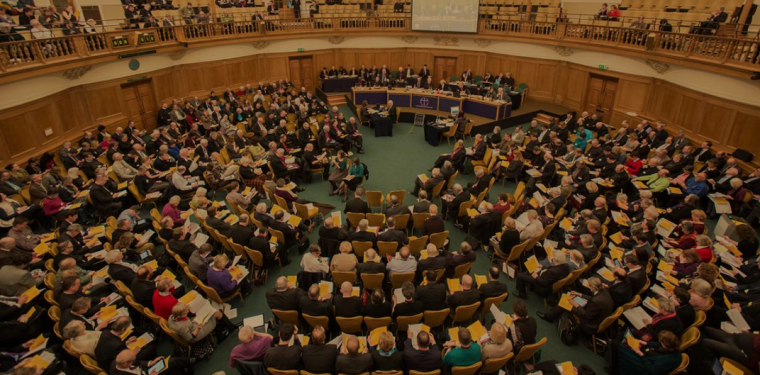Evangelicals and Anglo-Catholics hold talks with Church of England bishops over transgender guidance

The organisers of an open letter signed by 3,000 lay and ordained members of the Church of England opposing recent transgender guidance have met with bishops to raise their concerns.
The guidance published by the House of Bishops last December has encountered huge opposition from conservative members of the Church of England.
It formally commends the incorporation of the existing rite for the Affirmation of Baptismal Faith into services of welcome for transgender people. Clergy are advised that services should have a "celebratory character", incorporate elements such as water and oil, and address trans people by their chosen name.
An open letter so far been signed by 3,150 people calls the guidance a "misuse" of baptismal liturgy that rejects physical differences between male and female without theological justification.
It reads: "Although reaffirmation of baptismal vows might well be appropriate at certain seasons of life, it should primarily be focussed on celebrating new life in Christ rather than a new situation or circumstance, as set out in Common Worship: Christian Initiation, and should always centre on salvation, repentance and faith rather than 'unconditional affirmation',"
The evangelical delegation comprised of organisers of the letter - Dr Ian Paul, theologian and member of Archbishops' Council, Dr Edward Dowler, an Anglo-Catholic and Archdeacon of Hastings, Rev Rachel Marszalek, an incumbent in the Diocese of London and member of the Church of England Evangelical Council and Fulcrum, and Rev David Baker, an incumbent in the Diocese of Chichester.
They met with the Bishop of Coventry, Dr Christopher Cocksworth, who is also chair of the Church of England's Living in Love and Faith project on Christian teaching and learning about human identity, sexuality and marriage.
He was joined by the Bishop of Newcastle, the Rt Rev Christine Hardman and the Bishop of Exeter, the Rt Rev Robert Atwell, as well as staff from Church House.
During the meeting, questions were raised about the wording of the guidance as well as the procedures that had been followed in its production.
They also raised concerns about the tone of some of the criticism that signatories had received for adding their names to the open letter.
Speaking after the meeting, the evangelical delegation said that there was a shared concern on both sides for "respectful public dialogue" on the issue.
"It was illuminating to hear of some of the complexities involved, as well as to gain a clear understanding that things could have been done differently. Nevertheless, there remain questions about proper procedure that we would like to be pursued," they said.
The continued: "We remain concerned, however, about what seems to us to be ill-considered use of the Bible in the guidance, as well as the apparent influence upon it of highly contested gender ideology.
"In the light of our concerns, we continue to believe that the guidance should be withdrawn, until such time as the Living in Love and Faith project is able to offer more considered reflection upon these crucial issues."
The bishops were unavailable for comment.
The full statement from the evangelical delegation can be read here











